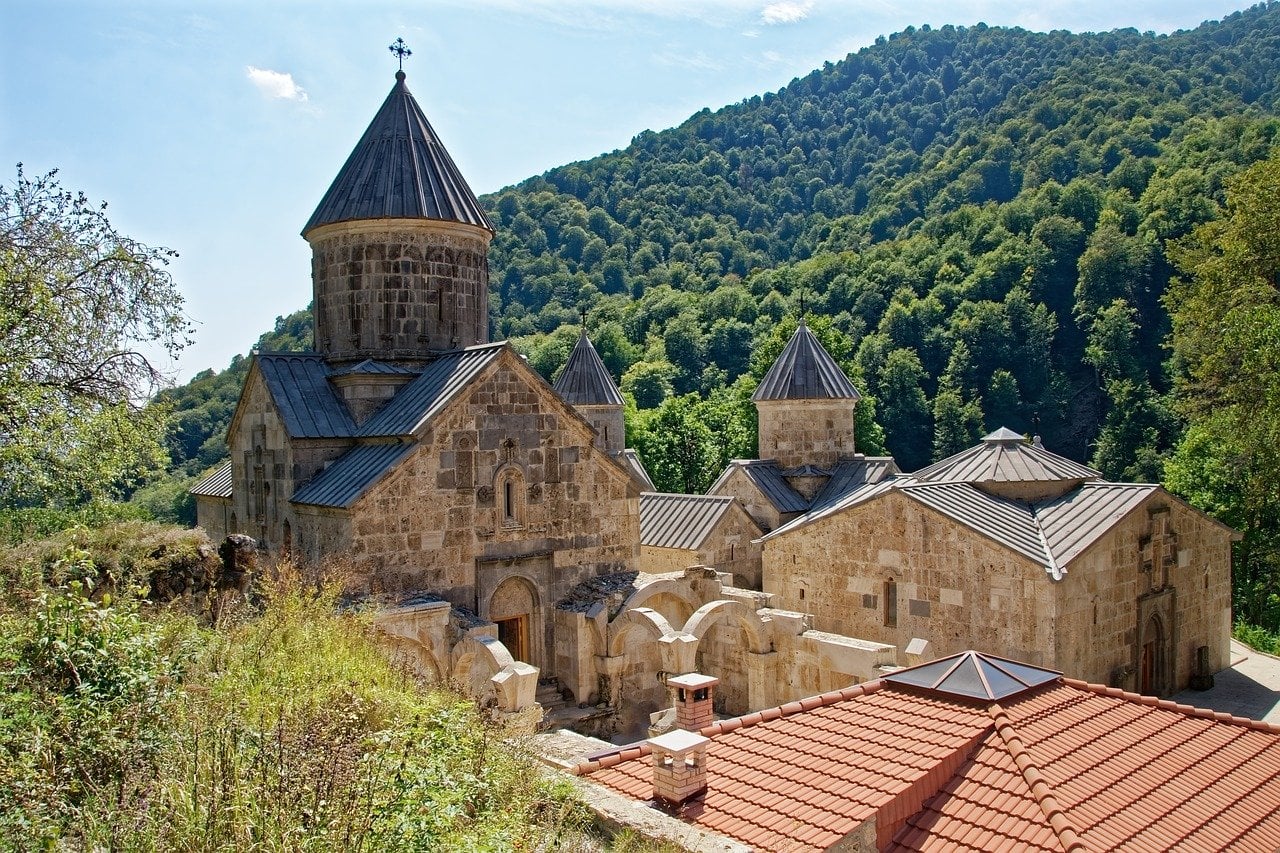
For his first trip abroad, the right-wing candidate Éric Zemmour made the highly symbolic choice to go to Armenia. The three-day trip was uncommon for a candidate to a French election.
There are some reasons that explain his choice of Armenia. First, in terms of geopolitics, it sends a signal of trust to the democratic republic. The gesture was an important one, since the reliability of a French alliance needed reassurances. The position of France, after all, wasn’t very clear during the crisis for the Karabakh region in 2020. At that time, France didn’t seem eager to impose limits to an expansion of Turkey, a threat that was masked behind the ambitions of the Azeris. Second, Zemmour’s trip demonstrates a coherency of purpose. In prioritizing Armenia, he links his candidacy with a commitment to preserving European values. The message he seems to be sending is that by choosing him, voters are also choosing a humane over a technocratic answer to conjunctural difficulties. Armenia symbolizes a return to the sources and the origins of our European Christian culture.
But a visit to Armenia might also secure votes by French Armenians. France was one of the first European countries to support Armenian nationalism against the Ottomans, and had welcomed a significant segment of the Armenian diaspora. The Armenian community in France today numbers approximately 600,000 people, an obvious pool of votes to mobilize for the presidential election. In his speeches, Zemmour likes to summon great cultural figures of this diaspora, such as the singer Charles Aznavour, or the film director Henri Verneuil, whose Armenian birth name was Achod Malakian.
Located at the outpost of Europe, Armenia is today the country that best embodies the resistance of the European Christian civilization against the assaults of Islam. This message seems to be the takeaway Zemmour desires to impress upon voters.
For he who understands dangers to Western values posed by Islam, Armenia embodies a real and active resistance, one of an armed struggle. But Armenia also mediates by analogy pressure on the French to resist movements or ideologies that threaten their own civilization’s core values. The aggression inflicted upon the Catholics of the Diocese of Nanterre, as they celebrated the Feast of the Immaculate Conception on December 8th, allowed Zemmour to draw a great arc connecting the Parisian suburbs to the borders of Europe against a common enemy.
With this trip to Armenia, Éric Zemmour reignites the discourse on the war of civilizations, a decision for which he has been reproached by his opponents. Some members of the Armenian community denounced the visit as a thinly veiled grab for votes. Others underlined his contradictions, recalling that a few years ago Zemmour was among those who violently criticized the Memorial Laws on the grounds that they trigger a disastrous race to repentance (although these laws have encouraged, among other things, the recognition of the Armenian genocide, against Turkish denial).
For the moment, the choice of Armenia on his campaign trail allows Zemmour to consolidate and strengthen his camp. The Armenian cause is particularly dear to conservative and Catholic circles, and Zemmour has used it to secure support from sovereignist Philippe de Villiers, who had shown in the last weeks signs of skepticism towards him. By putting forward Armenia, Éric Zemmour touched a sensitive point, and sent a very clear signal that Philippe de Villiers could not resist. As a Catholic and critic of Islamic influence on the EU, de Villiers is now determined to cast his support for Zemmour as the man who best embodies the defense of Western civilization and its Christian roots.
“Paris is worth a Mass:” these apocryphal words have been attributed to King Henry IV who, at the time of the Wars of Religion, had understood that his conversion to Catholicism was the indispensable condition for the pacification of the kingdom. Zemmour knows French history too well not to have this old adage in mind. But in the eyes of the moderate right, and everyone left of that, he lends himself to a criticism that is always quick to resurface, that of opportunism or “Maurrassism,” that is, the temptation to appeal to Catholicism for inspiring political action, often at the cost of faith. Zemmour’s supporters are grateful to him for assuming this Maurrasist posture – regardless of his own personal faith. His opponents will not forgive him for it.
